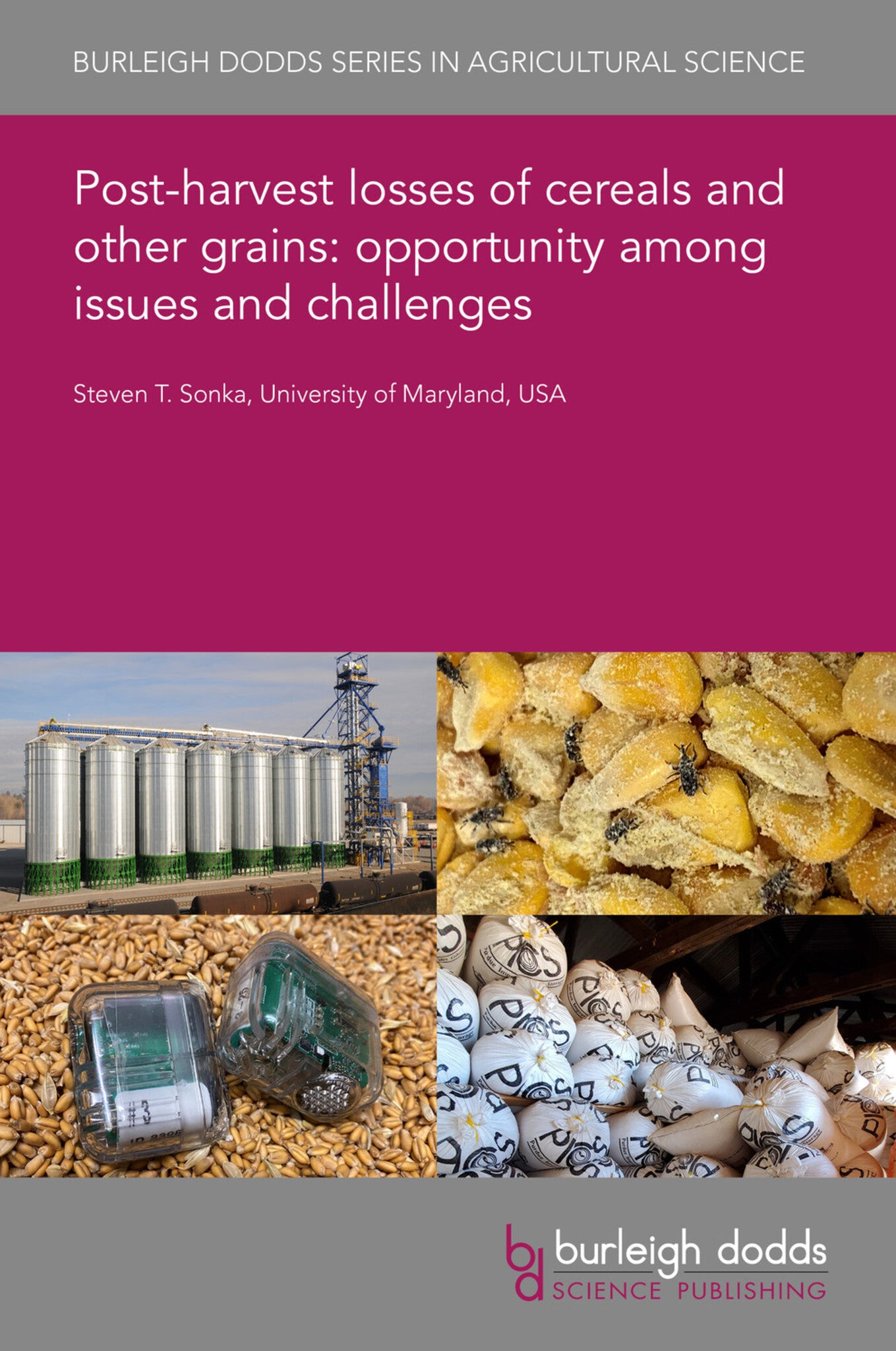We're sorry. An error has occurred
Please cancel or retry.
Post-harvest losses of cereals and other grains: opportunity among issues and challenges

Some error occured while loading the Quick View. Please close the Quick View and try reloading the page.
Couldn't load pickup availability
- Format:
-
24 August 2020


TECHNOLOGY & ENGINEERING / Agriculture / Agronomy / Crop Science, Agronomy and crop production, TECHNOLOGY & ENGINEERING / Agriculture / Sustainable Agriculture, Sustainable agriculture

1 Introduction 2 Is zero loss a desirable goal – what does economics tell us? 3 What is the ‘hidden tax’ resulting from excessive post-harvest loss (PHL)? 4 Can we move from measuring loss to managing to reduce PHL? 5 Can we overcome the PHL paradox? 6 Examples demonstrating the potential for sustainable reduction of PHL 7 Summary 8 Where to look for further information 9 References



